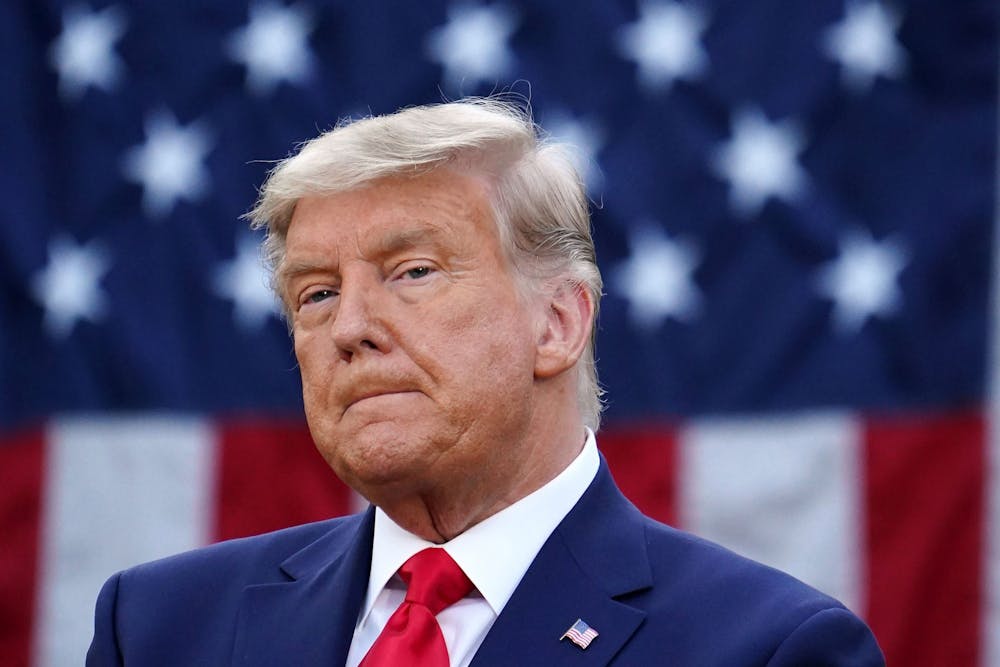The Associated Press projected Joe Biden as the president-elect Nov. 7, after it became apparent Biden had won the necessary electoral votes in Pennsylvania to reach the 270 needed to win.
President Donald Trump has refused to accept the results of the election, and his campaign has filed several lawsuits in various states attempting to stop votes from being counted or invalidate ballots. The majority of these lawsuits have been filed in states where Biden won by a slimmer margin than others, according to a Time article.
A few of these lawsuits have already been dismissed by judges in Pennsylvania, Nevada, Georgia and Michigan. The Trump campaign is requesting a recount in Wisconsin and Georgia, according to the article.
Most of the ongoing lawsuits are in Pennsylvania and involve the Trump administration trying to stop the count of mail-in ballots and ballots received after 8 p.m. on Election Day.
Marjorie Hershey, a professor emeritus in political science at IU, said the Trump administration is trying to take every approach possible to slow or change the election results.
If the Trump administration can delay the counting until Dec. 14, the deadline for electoral votes to be cast, their hope is states with majority Republican state legislatures would appoint a Republican slate of electors rather than the Democratic slate chosen by the majority of voters, Hershey said.
According to the National Archives website, choosing a slate of electors is a two-part process. First, political parties in each state choose potential electors before the general election. Second, the voters in each state select the state’s electors by casting ballots during the general election.
If the process is drawn out long enough, Republican state legislatures can claim the results were indeterminate and send their own slate instead of the one the people voted for. This outcome is what the Trump administration is hoping for, Hershey said.
“I don’t think they’ll be successful,” she said in an email.
Hershey said various voting machines have different levels of security. For example, op-scan machines with paper ballots are more secure than electronic direct recording voting machines and more secure than those without a paper record, she said.
She said claims that voting by mail is fraudulent are not supported by evidence and are instead promoted by Trump for his own self-interest.
“That’s a danger to a democratic system,” she said.
Nicholas Almendares, an associate professor in the Maurer School of Law, said the Trump administration’s endgame is to affect enough votes to change the result of the election. However, a few hundred or thousand altered votes will not be enough for the election to be overturned, he said.
“All the election officials knew that this was going to happen,” he said. “In part, Trump said he was going to do this.”
Almendares said the nature of the judicial process is slow with technical and careful considerations. He said he thinks people should be able to go into court and fight for their interests, but it is hard for an unelected group of judges to manage elections which face great public weight.
“Managing elections is not something that federal courts are well equipped to do,” he said.
The left-and right-wing political parties in the United States have little overlap today, Almendares said. Biden may become president while there is a divided Congress, depending on runoff elections in Georgia.
“It’s way easier to govern under a unified government,” he said.
William D. Popkin, a professor in the Maurer School of Law, said the potential long-term political implications of Trump contesting the election results would be the alteration of a peaceful transition of power.
“Once you set a precedent for somebody to do something like that, undermining the peaceful transition of power, you’re beginning to go down a path which could continue,” he said.
The polarization of political parties in the U.S. will be severely affected by Trump’s challenges to the integrity of the election process, Popkin said. He said he thinks Trump will continue to create division in the country and could possibly declare candidacy for 2024.
“He’s not going to go quietly,” he said. “He will continue to fan the flames of division.”




